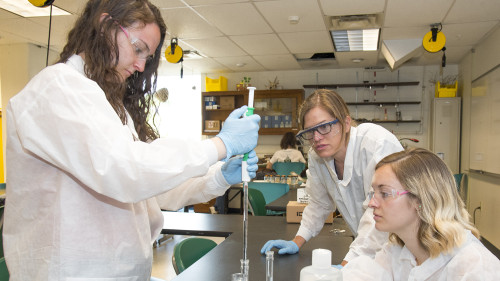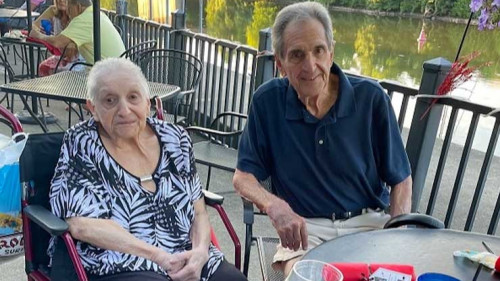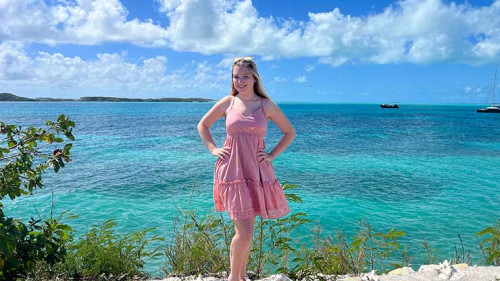
Three Siena students are combining service to the local refugee community with preparation for careers in medicine, public policy and law.
Shriya Matta ’22 and Medha Palnati ’22 , both biology/pre-med majors, and Kiley Lenahan ’23, political science, helped organize and run a health clinic for female refugees on September 25 at the Refugee Welcome Center (RWC) in Albany’s West Hill neighborhood.
Matta and Palnati have been volunteering with the RWC in a number of ways: college access and health care career exploration for high school age students, writing workshops, and translation for clients. Palnati is fluent in Spanish; Matta speaks Hindi, Punjab and Urdu.
Having worked with refugees and especially women in the community, they realized that many were coping with health conditions that had not been properly addressed. Vera Eccarius-Kelly, Ph.D., professor of political science and international relations at Siena and a dedicated community leader involved with the RWC for the past three years, arranged for a third-year medical resident from Albany Medical College to come to the center and meet with the refugee clients.
“Some of the women shared alarming descriptions of health conditions,” said Palnati. “They weren’t getting the care they need because of several different barriers and our goal was to address that.”
Palnati and Matta took the women’s vital signs and brought them in to see the resident. They explained that even though the women were presenting with a range of ailments such as anxiety, gastrointestinal distress, and heart arrhythmia, their challenges with language, transportation, funding, and child care made arranging medical help difficult.
More complex issues, such as a stigma surrounding mental health care, and cultural traditions that men and boys receive proper medical treatment while women make do with home remedies also meant that the women who needed care were not getting access to it.
Palnati noted that several of the women were refugees from Afghanistan, and the collapse of that country’s government and the takeover by the Taliban in August exacerbated the trauma-related stress they were already experiencing from fleeing their homes.
Matta said the Albany Med resident Eccarius-Kelly recruited wore the hijab, which helped put the clients at ease.
“Most of the women would prefer to work with a doctor who looks like them, someone who understands them and their culture” said Matta.
Those who had previously received health care in the states did not feel adequately heard during their appointments. They were discouraged, and confused about prescribed medications and follow-up care, or why they weren’t getting better.
Matta and Palnati said that helping women, refugees and immigrants become empowered to advocate for their health and well-being is part of what motivates them to become physicians.
Lenahan is working with Eccarius-Kelly on an independent study project to assess the feasibility of hosting a refugee family on the Siena campus next year. She helped at the clinic with intake and child care while the women were speaking with the medical resident.
A new program called Every Campus a Refuge developed by Guilford College in North Carolina is based on Pope Francis’ call for churches to welcome and host a refugee family. Every Campus believes that if a church can do it, then a college with all its facilities should also be able to do so as well.
“There are a lot of details to consider in doing this. I’m glad I can take what I’m learning in the classroom to do substantial work to help people.”
Kiley Lenahan ’23
“It makes all the long hours of biochemistry worth it.”
Medha Palnati ’22
They encourage other Siena students to get involved in serving the local community by volunteering with outreach clubs here on campus, or by asking a faculty member or administrator about service opportunities.

